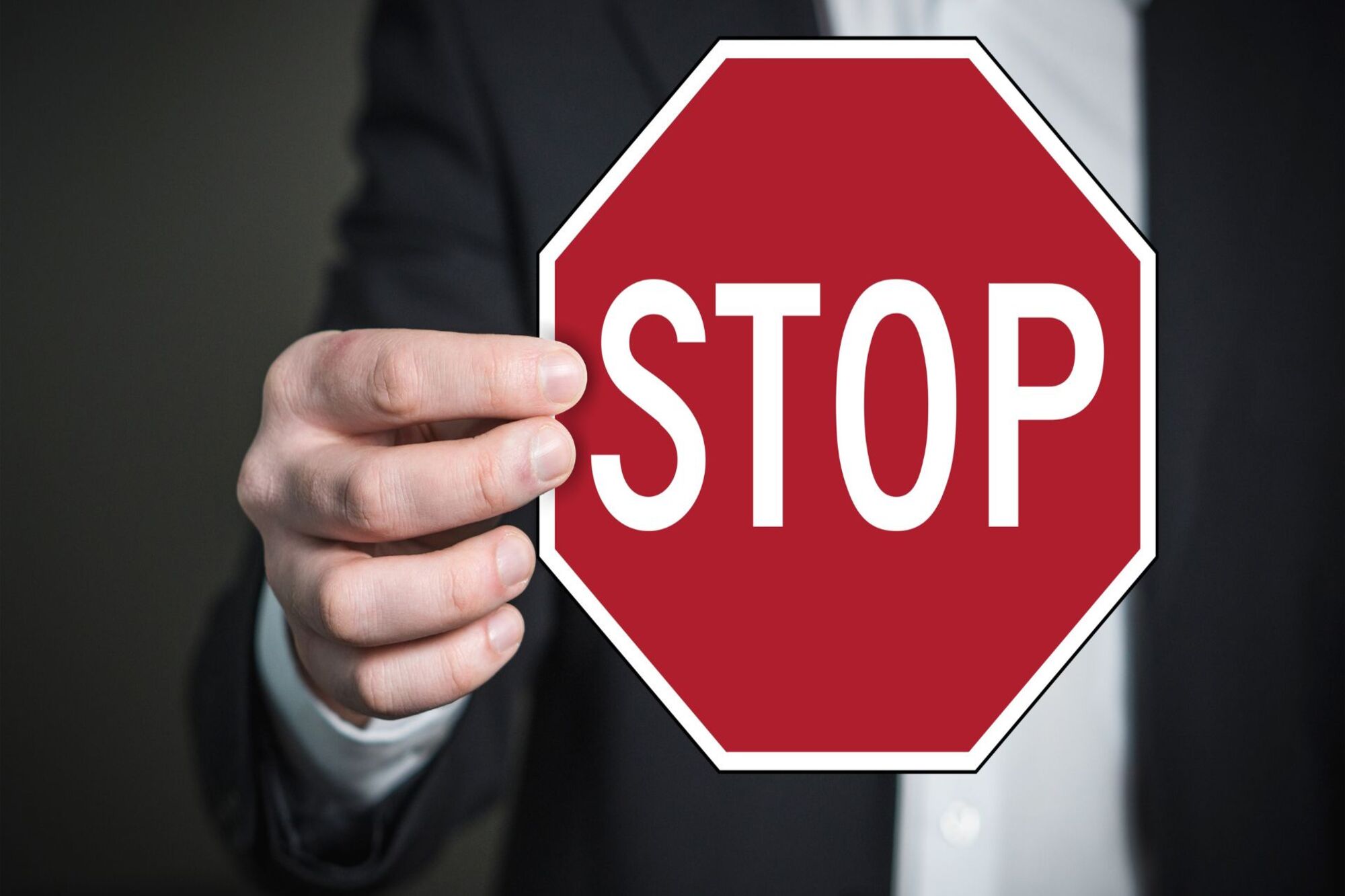
Alcohol and Corona
Mulled wine here, toasting there. Alcohol consumption is a perennial issue, especially around the holidays. And it is measurably on the rise during coronavirus lockdown periods.
Ludwig Binder, a graduate social pedagogue, is an addiction therapist and managing director at Neon. In the conversation, he tells us why he believes we should just relax a little, what drinking is really about, and what to do when it gets tougher.
Ludwig, during the Corona lockdown in the spring, the consumer numbers—measured by purchases—rose sharply. As an expert, have you also noticed a development?
Yes, I have. For example, with myself. My consumption of this intoxicant has also increased. Why? Because I simply had more time during the lockdown. And that's how it went for 80% of the population.
Drinking out of boredom is just one of many issues. Especially during lockdown phases, increased psychological stress, lack of social control, and a perhaps previously "conditioned" addiction potential play a role.
Do you consider this development concerning?
You always have to put it into perspective and, above all, look at each individual case to see exactly why someone is drinking. In general, alcohol addiction can be very well overcome. At least two-thirds of all alcohol addicts overcome their critical consumption on their own and subsequently drink again in a pleasure-oriented manner. There's too much focus on the act of drinking itself. However, the reasons behind it are much more significant, especially if you want to overcome the addiction.
2/3 of the drinking population manage to overcome addiction from risky consumption solely through the promotion and demand of self-responsibility.
When does one actually speak of dependency?
According to terminology, anyone who consumes intoxicants like alcohol is considered dependent. It is important that we move away from the image of an alcoholic who has already lost everything, who is practically homeless and finished with the world, when it comes to dependency. No. Alcohol dependence is much more banal and affects both you and me. A medically diagnosed alcohol addiction is already the end of the line and affects about 10% of the consuming population.
The medical guidelines for safe alcohol consumption for men are a maximum of half a beer or 0.2 liters of wine per day. For women, half of these guidelines apply. At the same time, in my opinion, it is a misconception to believe that the only way to improve is never to drink again. This is rarely the formula for success. The solution must lie in overcoming it – and in my experience, this is also the norm. That means being able to enjoy alcohol in moderation.
Healing must lie in overcoming. That means finding a way to consume alcohol in an enjoyable setting.
But the boundaries between enjoyment and skew are fluid. At what point is it sensible to reflect that there might be a problem?
One must first differentiate in terms. It is not about "addictive substances," but rather about "intoxicants." These do not necessarily promote addiction but instead create intoxication. And intoxication is in principle something wonderful with high quality for life. This definition of intoxication already starts with barely perceptible changes in the psyche, such as relaxation, and does not refer to excess.
Drinking itself only becomes a problem when it is no longer enjoyable. Drinking in inappropriate situations such as in traffic, during sports, or at work is also problematic.
If you say intoxication itself is something wonderful, would you recommend indulging in this intoxication from time to time?
Formulated the other way around: Pure sobriety could potentially be seen as unhealthy – at least when it becomes compulsive. So, what does it say about a person if they never allow themselves to indulge in intoxication?
And what if it becomes problematic after all?
When it's no longer enjoyable, you look more closely: What kind of problem is it? For example, if I have a huge argument with my partner, then drink too much, and come to work hungover the next day, it's still not an addiction problem. But it was certainly risky consumption. Does it stay a one-time occurrence? It doesn't throw my life off track. Does this behavior become a pattern? This already has bigger implications.
Man doesn't drink five half beers because it's so great. He drinks those five half beers so that it becomes great again.
Are those the very people who find it difficult to maintain the balance between enjoyment and excess, the ones who come to you?
Above all, these are the people we want to reach. Not (or not mainly) those who are, to put it bluntly, already ripe for the clinic. Drinking is a symptom of a cause or an attempt to solve something—like stress, overload, grief, repression, or simply boredom. Then it becomes self-medication with the aim of being emotionally stable and balanced at the end of the day. I believe most of us have experienced this at one time or another. The "art" is to be able to scale back this consumption behavior and adjust to self-regulation.
There are people with a higher neurobiological tolerance to the effects of alcohol. These people only notice changes after higher consumption - and may tend to be more susceptible to addiction.
And what if I feel like I'm drinking too much, but can't manage to stop?
Then talk, talk, and talk again. Confiding in someone and hashing out the topic is a good idea. Through conversation, you experience differentiation and are more able to resolve dysfunctional patterns. That's why it makes so much sense for everyone to have therapeutic experiences at least once, because these patterns can be worked through most efficiently here.
Therapy seems very exposing for many people.
The word therapy confronts its own boundaries of shame and fear. The common belief is, "I go to therapy when I have a problem. And if I have a problem, then I'm sick." It's about managing your frustrations independently. That is a very healthy decision.
I think that people who want to make a change have to overcome this hurdle and admit that perhaps not everything is entirely beautiful and good.
By the way: Even very well-personality-structured and well-situated people have inner constructions. Quite simply, because that's in the nature of humans. This in no way classifies us as good or bad. People need to be generally better addressed to make the concept of therapy more accessible to them.
If I notice that a colleague is increasingly deteriorating due to alcohol – are there ways to help those affected?
- Step 1
I recommend addressing the affected person with what they already know, namely that things are obviously not going so well at the moment. Describe your observations and concerns and offer your help. Those affected, who were confronted with deficiencies in their work in this manner from the outside during the conversation, feel a nudge inside. This promotes self-responsibility and self-healing.
- Step 2
However, also accept if the affected person does not want to be helped. Discuss the matter with your team leader. Important: Do not say "Person X is an alcoholic and can’t get anything done." Instead, say "I have noticed that Person X has not been sufficiently involved for some time, is not managing their workload, and that colleagues have to compensate for this.
- Step 3
Subsequently, the team leader should approach the person directly – again with the statement, "I've come to expect something different from you; you have always been reliable before. That hasn't been the case for some time. I'm concerned about you. What do you need to be back on track here?
The person concerned is given the opportunity to take responsibility for themselves through open and honest confrontation. Whether this person is able to change something on their own, calls a counseling hotline, or registers for therapy: it's in their hands.
Executives must be present to encourage and demand the assumption of self-responsibility among those affected in the organizational environment.
You might say: "I have full confidence that if you want to change something, you will succeed. And if you need anything from me for that, just let me know.
Are there things that consumers can do just for themselves in the here and now—especially with the upcoming holidays in mind?
One can do a kind of pleasure training. This is how it works: Set rules for yourself regarding frequency and dosage. Try to create pleasure-oriented rituals within these rules. Note: It's about the high. Not about being drunk. That would be excess.
Consume intoxicants in a way that you do not derive problems from them, but rather, at best, positive effects such as relaxation, anxiety reduction, and expanded awareness. Enjoy in moderation and enhance your competence in this regard.
Ludwig, thank you for the conversation!
by Jana Lorenz


